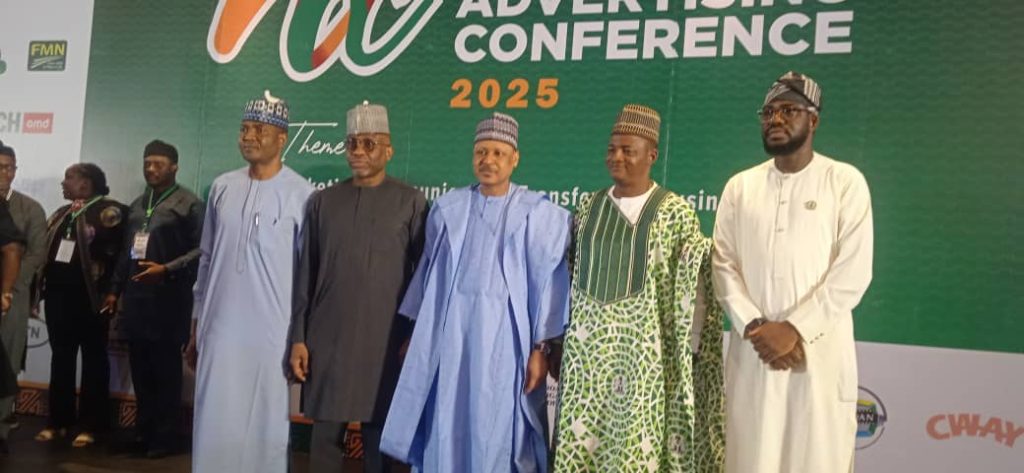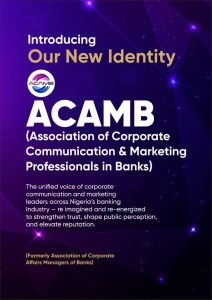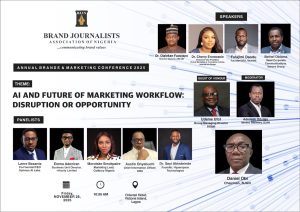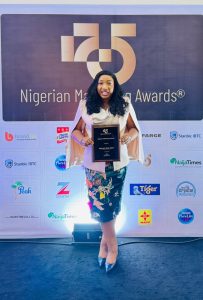
By Godwin Anyebe
The advertising and marketing communication industry, often seen as the vibrant pulse of consumerism, recently convened its most strategic thinkers at the Fifth Edition of the National Advertising Conference. Under the timely and strategic theme, “Marketing Communication: Transforming Business and Creating Growth in Challenging Times,” the conference served not just as an industry gathering, but as a critical forum to address national economic realities and, crucially, to spearhead a collective effort to redefine Nigeria’s global narrative.
The tone for this convergence of minds was set by the Chief Host, the Minister of Information and National Orientation, Alhaji Mohammed Idris, whose address firmly positioned the government of President Bola Tinubu as an active partner in this critical endeavor. The Minister tackled a prevailing international challenge head-on: the designation of Nigeria as a country of particular concern regarding religious tolerance.
“The government of President Tinubu is taking up the challenge of Nigeria being a country of particular concern,” the Minister declared, emphasizing the administration’s commitment to addressing misconceptions.
He further stressed the vital role of the communication sector in this national reorientation effort. “Nigeria is facing a challenge of misleading information which says Nigeria is a country that does not tolerate religion.”
Highlighting recent high-level security briefings, Alhaji Idris underscored that marketing communication remains pivotal to championing the cause of the government’s efforts. Through integrated campaigns and digital engagement, the sector is tasked with proactively correcting false narratives and projecting the truth about the nation.
“As Minister of Information, I will continue to partner with ARCON to ensure that the Nigerian story is told by Nigerians themselves,” he affirmed, reiterating a core message that in these challenging times, communication remains the strongest tool for nation-building.
Dr. Lekan Fadolapo, the Director General of the Advertising Regulatory Council of Nigeria (ARCON), welcomed attendees with a sense of humility and gratitude, emphasizing the evolving nature of the industry. “In today’s world, the marketing algorithm has changed. In the 2025 Advertising Conference, we have come together as curators, storytellers, and innovators,” he said, framing the conference as a crucial collaborative move for the future.
The conference, whose agenda was strategically centered on the economy, agencies, and various sectors, according to the Chairman of the National Advertising Conference Committee, Tunji Adeyinka, kicked off with a hard look at Nigeria’s economic landscape.
Olusegun Zacheaus, Partner at PWC, delivered a compelling presentation titled, “Nigeria’s Economy at an Inflection Point: Mapping Growth and Opportunities.” Zacheaus offered a balanced view, citing key areas of optimism tempered with necessary caution.
He noted that while the country’s GDP is showing growth and there is a “seeming stability in the exchange rates,” alongside the convenience of using the Naira card abroad, a major psychological win for 2025 has been the progress made from both monetary and investor perspectives.
“From the investors side, we are also making progress. There is a better investment opportunity in Nigeria as an economic entity,” Zacheaus stated.
However, he warned that high inflation, despite a slight slowdown, continues to create a fear regarding future debt sustainability, which could potentially lead to the exit of foreign investment portfolios.
Looking ahead to 2026, the PWC expert advised businesses to pay close attention to the affordable level, as real income may not grow substantially, and to anticipate constraints in consumer funding. Other pivotal issues he highlighted include the implementation of new tax laws and the ongoing challenge of debt sustainability due to significant borrowing.
Zacheaus’s summarized outlook for 2026 was cautiously optimistic: it should be a better year with a slowdown in inflation and a likely reduction in interest rates, making it potentially a good year for investors, provided security concerns continue to be addressed by the Federal Government.
He also cautioned the service-based economy about the emergence of technology and AI, noting that many companies are already downsizing due to technological advancements.
His advice to business people and advertisers was clear: “You must reinvent what you sell; for advertisers, copywriting should not be what you sell. You must reinvent how you operate. You have to be low-price and have low-cost. And you must accelerate how you use technology.”
The leaders of the various industry associations echoed the sentiment of collaboration and national duty. Lanre Adisa, President of the Association of Advertising Agencies of Nigeria (AAAN), thanked and congratulated ARCON and stressed the powerful concept of Nigeria as a brand.
“The entity called Nigeria is a brand and we want to partner with the Minister to project and ensure brand Nigeria excels because no one knows Nigeria than Nigerians,” he asserted.
From the Experiential Marketing aspect, the President of EXMAN, Tolu Medebem pointed out the need for mentorship and cross-generational collaboration to create the necessary trust to push the industry forward. “The future of advertising is not a solo move but a collaborative move,” she noted.
Omo Abuneme, Vice President of the Outdoor Advertising Association of Nigeria (OAAN), congratulated the committee and underscored the importance of the conference’s economy-centric theme. “All the speeches we will be listening to should be taken seriously,” he urged.
A significant recognition was given to Steve Babaeko, Vice President of the International Advertising Association (IAA), the first Nigerian to hold this position.
He congratulated ARCON on the fifth edition and emphasized advertising’s vital role beyond mere brand promotion. “Advertising remains a vital force driving brands and even of a nation,” Babaeko said.
He delivered a powerful message to the government: “No matter how good your policies are, if the people are not known to such policies, I think this is where Advertising comes in.”
Finally, Dr. Bola Joko Ajayi, President of the National Institute of Marketing of Nigeria, spoke of the power of unity. “As an industry, we can achieve more if we come together. I believe strongly that there is a lot that we can do together instead of working in silos.”The Fifth National Advertising Conference transcended its core objective of industry learning. It emerged as a strategic blueprint for survival, growth, and national image projection. By aligning the government’s need for effective communication with the industry’s expertise in storytelling, innovation, and strategic campaigns, the path forward is clearly marked: the Nigerian story must be told truthfully, collaboratively, and primarily, by Nigerians. The advertising sector has firmly embraced its role as a key agent for national reorientation and economic optimism.



